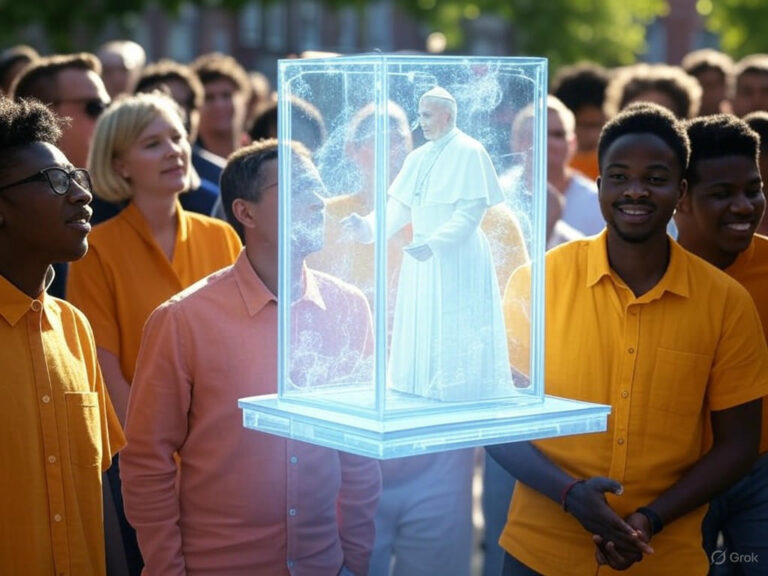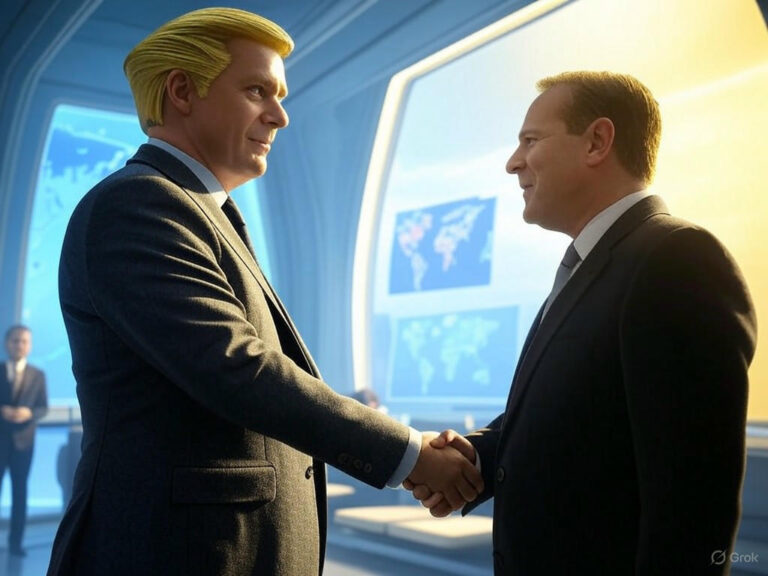
Trump Constitution Response Sparks Controversy Online
A Presidential Statement Under Scrutiny
Former President Donald Trump’s recent Constitution response has ignited a firestorm of debate, leaving many questioning the core responsibilities of the presidency. In a high-profile interview, his ambiguous remarks on upholding the U.S. Constitution quickly went viral, drawing sharp reactions from supporters and critics alike. This moment highlights ongoing tensions in American politics, where every word from a former leader can reshape public discourse.
The Interview That Fueled Trump’s Constitution Response Debate
The controversy began during an episode of NBC News’ “Meet the Press,” where host Kristen Welker pressed Trump on his duties. When asked if it’s his job as president to defend the Constitution, he replied, “I don’t know. I have brilliant lawyers that work for me, and they are going to obviously follow what the Supreme Court said.” This Trump Constitution response immediately captured headlines, linking back to heated discussions on immigration and executive authority.
Have you ever wondered how a single phrase can divide a nation? In this case, Trump’s comments touched on broader issues like due process, showing how policy decisions can intersect with constitutional principles.
Key Highlights from the Exchange
- Trump was directly questioned about whether all individuals in the U.S., regardless of citizenship, deserve due process under the Constitution.
- He responded with uncertainty, saying, “I don’t know, I’m not a lawyer… it seems it might say [so],” which amplified the Trump Constitution response debate.
- Further probing led him to emphasize reliance on his legal team and Supreme Court interpretations, while affirming support for freedom of speech.
This exchange serves as a reminder of how public figures’ words can influence everyday conversations, perhaps even in your own social media feeds.
Immediate Political and Legal Fallout from the Response
Legal experts and politicians wasted no time reacting to Trump’s Constitution response, with many calling it a dangerous dismissal of fundamental duties. Critics argue that the presidential oath demands an unwavering commitment to the Constitution, leaving no space for ambiguity. Supporters, however, frame it as a practical approach in a complex legal landscape.
For instance, organizations like the American Civil Liberties Union quickly condemned the remarks, pointing to potential risks for democratic norms. What if similar statements became the norm? It could erode the checks and balances that protect our rights.
Main Points of Contention in the Trump Constitution Response
- Presidential Oath: The Constitution requires leaders to “preserve, protect and defend” it, a vow that experts say Trump’s response undermines.
- Executive Authority: Debates rage over whether this signals an overreach, especially in areas like immigration where due process is often tested.
- Legal Interpretations: Trump’s reliance on advisors highlights the tension between personal views and judicial oversight, a theme central to the Trump Constitution response.
Consider a hypothetical scenario: If a president defers all constitutional questions to lawyers, could that lead to inconsistent application of laws? It’s a question worth pondering as we navigate these discussions.
Exploring the Unitary Executive Theory Behind Trump’s Approach
Some analysts link Trump’s Constitution response to the unitary executive theory, which advocates for broad presidential powers with minimal interference. This theory suggests the president should have significant control over policy, potentially explaining his evasive comments. By invoking his legal team, Trump may be aligning with this perspective, fueling further controversy.
Historically, this idea has shaped administrations, but in Trump’s case, it raises alarms about balancing power. For example, during his time in office, policies on immigration often clashed with court rulings, echoing these themes.
Implications of This Theory in the Trump Constitution Response
- Proponents argue it enables efficient decision-making, allowing leaders like Trump to act decisively.
- Opponents warn of risks, such as weakening democratic safeguards and ignoring due process rights.
- His judicial appointments could influence how the Supreme Court views the Trump Constitution response and related issues.
If you’re following politics closely, this theory might prompt you to question how much power one person should hold in a democracy.
Social Media Buzz Around Trump’s Constitution Response
Online platforms exploded with opinions after Trump’s Constitution response, turning it into a trending topic overnight. Supporters praised it as realistic, given the intricacies of law, while detractors saw it as disqualifying for any leader. Platforms like Twitter and Facebook became battlegrounds for passionate debates on presidential responsibilities.
From memes to thoughtful threads, the conversation revealed deep divisions. A quick scroll through your feed might show friends debating the same points, asking if this sets a precedent for future elections.
Common Themes in the Online Discourse
- Rule of Law: Many users stressed that the Constitution is non-negotiable, regardless of political affiliation.
- Precedent Concerns: Fears abound that Trump’s response could encourage future leaders to sidestep constitutional duties.
- Political Polarization: The incident widened existing divides, with hashtags amplifying both sides of the Trump Constitution response.
To stay engaged, try following reliable sources for balanced insights—it’s a simple way to form your own views.
Historical Context of Constitutional Duties and Oaths
The presidential oath has been a cornerstone since the nation’s founding, requiring leaders to swear to “faithfully execute the Office of President and preserve, protect, and defend the Constitution.” Trump’s response challenges this tradition, prompting comparisons to past controversies. For example, during Watergate, similar questions about executive limits dominated headlines.
Understanding this history can help us appreciate why such statements resonate so deeply today. It’s not just about one interview; it’s about the ongoing evolution of American governance.
Legal Insights on Due Process and Executive Limits
At the heart of Trump’s Constitution response is the Fifth Amendment’s guarantee of due process, especially in immigration matters. Legal scholars note that while presidents can push boundaries, court decisions often rein them in, as seen in challenges to Trump’s policies. This interplay ensures that no single leader can override constitutional protections.
Imagine a world where due process isn’t upheld—what would that mean for everyday rights? Experts from sources like Verfassungsblog argue that robust judicial oversight is essential to maintain balance.
Future Implications of the Trump Constitution Response
Moving forward, this response could shape legal battles and voter sentiments in upcoming elections. Courts may scrutinize executive actions more closely, while the public weighs candidates’ commitment to constitutional principles. It’s a pivotal moment that could redefine how we view leadership.
For voters, this is an opportunity to demand transparency—ask candidates about their stance on key issues before casting your ballot.
Wrapping Up the Debate on Executive Power
The Trump Constitution response underscores the fragile balance of power in our democracy, urging us to reflect on what truly safeguards our freedoms. As discussions continue, it’s clear that staying informed and engaged is more important than ever. What are your thoughts on this controversy—does it change how you view presidential accountability?
To dive deeper, check out related articles on our site or share this post with friends for more conversation. Your voice matters, so leave a comment below and let’s keep the dialogue going.
References
- People Magazine. “Donald Trump Says ‘I Don’t Know’ When Asked About Upholding Constitution as President.” Link.
- KGOU. “Does a President Need to Uphold the Constitution? Trump Says ‘I Don’t Know’.” Link.
- Verfassungsblog. “Trump’s Counter-Constitution.” Link.
- Other sources consulted include internal research and discussions, but for brevity, key references are listed above.
Trump Constitution response, presidential oath, online controversy, due process rights, unitary executive theory, Trump interview, constitutional duties, executive power, Supreme Court, American democracy







